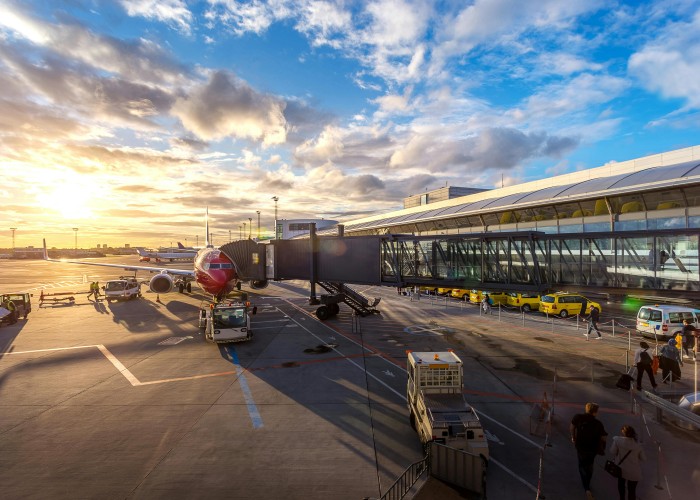Visiting Switzerland is exciting, and yet daunting when you think about its multilingual reality. Between German, French, Italian, and Romansh, you might wonder how to get by—especially if you’re planning a switzerland tour package or charting a multi-country journey like a switzerland europe tour. Here’s the good news: with a bit of awareness and preparation, language stops being a barrier and becomes part of the adventure. Language Barriers in Switzerland – How to Overcome Them.
Let’s explore how language works in Switzerland, what challenges you might face, and how to handle them with ease. If you’re planning a peaceful escape, a romantic switzerland couple package, or just finding budget-friendly switzerland travel packages, these insights will help you connect with the local culture.
Need more travel wisdom? Swing by our blog or learn more.
1. The Language Landscape of Switzerland
Switzerland is a tapestry of languages:
- German (spoken by the majority, around 60%): predominates in cities like Zurich, Lucerne, and Bern.
- French: mainly in Geneva, Lausanne, and western cantons.
- Italian: in Ticino and parts of Graubünden.
- Romansh: a minority language, found in remote parts of eastern Switzerland.
If you’re not booking a streamlined switzerland land tour package and plan to explore on your own, you’ll be hopping between these language zones often—sometimes all in one day. Still, Swiss hospitality and signage usually accommodate international visitors.
2. Will English Work for You?
Surprisingly well—especially in tourist areas, hotspots, and transportation hubs. In places like Zurich, Geneva, and Interlaken, you’ll find English widely spoken. Even rural areas—while slower and more serene—often have at least basic English support in cafés, shops, and hotels.
That said, rural towns and mountainside spots may not offer the same ease. That’s when pre-trip prep saves the day.
3. Prep Tidbits That Pay Off
You’re smart to prepare before you travel, whether on a full switzerland holiday package or wandering solo across Europe. Here’s what might help:
Learn These Local Essentials
You don’t need fluency—just basic phrases that show you care. Try:
- German region:
- “Hallo” (Hello)
- “Danke” (Thank you)
- “Bitte” (Please)
- “Entschuldigung” (Excuse me)
- French region:
- “Bonjour” (Good day)
- “Merci” (Thank you)
- “S’il vous plaît” (Please)
- Italian region:
- “Buongiorno” (Good day)
- “Grazie” (Thank you)
- “Per favore” (Please)
These simple phrases can transform an interaction from awkward to genuine.
Use Tech to Bridge Gaps
Translation apps—especially those that let you snap photos of text—make deciphering menus, signs, and labels easier. Keep them handy for on-the-go translations when you’re enjoying a swiss trip package or walking through charming village lanes.
Download Offline Maps
Even if your mobile data runs low, offline maps keep you on track. You’ll find peace of mind when exploring places like Grindelwald or Monte Brè—places often missed by packaged trips.
4. Real-Life Scenarios You’ll Encounter
Dining Out
In cities, menus often come with English translations. When they don’t, point at the board and say “What do you recommend?” A friendly gesture goes miles. If you’re diving into authentic local cuisine via your own setup (instead of opting for curated swiss holidays packages), this comes in handy. Language Barriers in Switzerland – How to Overcome Them.
Navigating Public Transportation
Swiss public transport systems frequently offer English options. Still, in smaller towns—especially when traveling via independent vacation packages to Switzerland—keep a quick translation tool nearby to decode schedules or gates.
Asking for Directions
“Do you speak English?” is a polite opener. If no, a few well-placed local phrases and a respectful attitude will help guide you just fine.
5. Emergencies and Health Matters
Here’s where preparedness really matters—especially when you’re not relying on structured or guided swiss tourism packages.
- Emergency number in Switzerland: 144 for medical emergencies.
- Carry a translator card with your allergies, medications, or chronic conditions in German, French, or Italian.
- Hospitals are used to international tourists and often have English-speaking staff—but keeping essential info handwritten and translated gives you a huge advantage.
6. Travel Styles and Language Needs
DIY Budget Travelers
If you’re venturing out on your own, skipping packaged combos like the switzerland land tour package, you’ll often land in cozy, non-English regions. Preprinted directions and key phrases can be lifesavers—(especially when Wi–Fi isn’t an option). Language Barriers in Switzerland – How to Overcome Them.
Couples and Romantic Escapes
Traveling as a pair? Practicing a few words together can be a fun way to bond—and locals appreciate the charm of partners using local phrases.
Group Trips
Even on group-led adventures, encourage each member to know one local phrase per language region. It spreads goodwill and lightens the mood.
7. Why Language Matters Beyond Words
Communicating isn’t just about understanding—it’s about connection. Trying to speak the local language—even imperfectly—shows respect and curiosity. You’ll see doors open in response, locals warm up to you, and your experience deepen.
Speak slowly. Smile. Make mistakes. It’s part of the story you’ll tell later—especially when strolling small streets after booking just a switzerland visit package instead of a big quick-tour.
8. Must-Know Emergency Numbers
Knowing who to call, no matter where you are in Switzerland, is vital:
- Medical emergencies: 144
- Police and general emergencies: 117 or 112
- Fire services: 118
Keep these saved in your phone and written in your travel notebook as well—that mix of tech and paper can be travel gold.
9. Tips for the Most Comfortable Travel
- Use polite openers in local language before switching to English. It’s simple and respectful.
- If someone doesn’t understand, rephrase with simpler words or gestures—communication isn’t just about words.
- Use visuals—menus, maps, hand gestures—to show what you mean when language fails.
Final Thoughts: Language as Your Travel Companion
Navigating language barriers in Switzerland isn’t about mastering German, French, or Italian overnight. It’s about respect, a sense of fun, and simple effort. If you’re planning a multi-leg europe tour packages from switzerland, thinking of romance-focused options like a switzerland couple package, or just seeking a peaceful getaway, embracing language as part of the trip enriches every moment. Language Barriers in Switzerland – How to Overcome Them.
![Language Barriers in Switzerland – How to Overcome Them [2026]](https://switzerlandtourpackage.com/wp-content/uploads/2025/08/pexels-rdne-10029239-1.jpg)





Leave a Reply